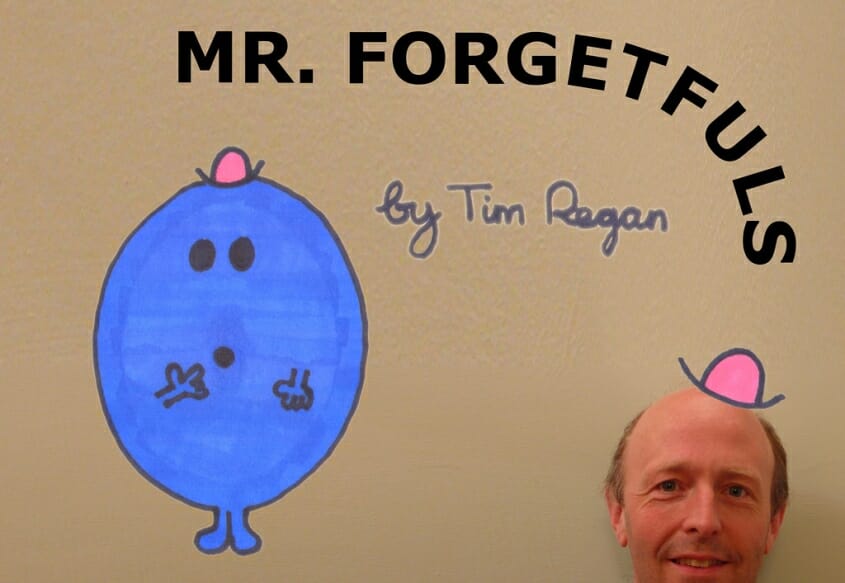This is a question I got from a mother:
I have a 13-year-old son who is a forgetful kid. I ask him to bring notes from school and he forgets them. He forgets his homework, he forgets to bring messages from school, he forgets he has a test, he forgets we have plans in the family.
I talked to his teachers and we agreed to communicate between us but he keeps forgetting his communication book. I feel lost and I do not understand why he is so forgetful in things that are important and remembers his computer stuff well.
What can I do?
This is not forgetting because of a memory problem. You can tell he remembers so many other things…
 The key here is “important”. What seems important to you, is not what he thinks is important. This is a very typical conflict between parents and teens – they think differently about what is important – which only proves you are a normal family. Do not expect a 13-year-old to have the same values of a grownup mother who is 20 to 30 years more experienced.
The key here is “important”. What seems important to you, is not what he thinks is important. This is a very typical conflict between parents and teens – they think differently about what is important – which only proves you are a normal family. Do not expect a 13-year-old to have the same values of a grownup mother who is 20 to 30 years more experienced.
When kids keep forgetting things that are important to them, this is the sign there is a memory problem. When they forget things others want from them, this is more of an indication of lack of motivation.
Kids forget things if remembering them may be painful. They will forget to unload the dishwasher every time, because they do not like to do it. On the other hand, they remember easy, fun things. Tell them you will bring them a present and they will remind you every day until you bring it.
Also, in life, you get what you focus on. If you focus on forgetting, you will create a forgetful kid. If you focus on remembering, your child will remember things well.
Rule #1 – Use positive language
Do not use the word “forget”. In fact, ignore acts of forgetfulness as if they never happened. Whatever happens, do not label your child.
Instead, focus on remembering. Say, “Did you remember to bring this home?” or “Please remember to bring this home today”. Be patient, as this will take time. It takes about 3 weeks for the brain to switch from an old habit (forgetting) to and cement a new on (remembering).
 Keep saying, “I expect you to remember to bring this home today”. Use the word “remember” 276 times a day (OK, this is just the number that came to my mind, but you get the point).
Keep saying, “I expect you to remember to bring this home today”. Use the word “remember” 276 times a day (OK, this is just the number that came to my mind, but you get the point).
[Read more about using positive language]
Rule #2 – Reward the desired behavior
At least twice a day, find something he remembered and say “It’s great you remembered to bring this home”, “I’m proud of you for remembering to bring this home today. You have really good memory”. Praise even tiny things, like “I see you’ve remembered to clear your schoolbag” or “I’m so happy you remembered to call me when you knew you were coming late”.
Rule #3 – Be direct and supportive
As angry and frustrated as you may be, avoid sarcasm. Do not say, “Lucky you didn’t forget your head” or anything like that. First, it contradicts rule #1 of using positive language and second, it is aggression in disguise.
You are helping your child develop good, responsible habits. Showing your frustration says to him, “I want you to remember for me”, which is external motivation.
To develop his internal motivation to remember, see yourself beside your son, the two of you looking and going in the same direction, slowly but surely. If you are there for him, he will do the best for both of you.
When he forgets something, say “That’s OK, it happens”, “It’s happened to me too”, “I know how it feels”, “You’ll learn from it” or “Next time you’ll remember”. Statements like these will make him feel that he is OK and that forgetting is not a state of being but an incident that you can learn from and make things better the next time.
Rule #4 – Teach him how to remember
The opposite of forgetting is writing down
Danny Heimann
 Teach your kid to make lists and then follow them. Remember, you need to teach him for him, not for you. If he thinks writing down is aimed to please you, he will forget the list…
Teach your kid to make lists and then follow them. Remember, you need to teach him for him, not for you. If he thinks writing down is aimed to please you, he will forget the list…
Make it worthwhile for him to remember the list. Put it in a good place and go over it with him. Always look for something he will benefit from. Use what he loves (something related to the computer is a good start, if he loves computers) to reward him for remembering.
Be creative. If he feels comfortable with the computer, suggest using the computer for keeping the list and maybe getting reminders.
Happy parenting,
Ronit












